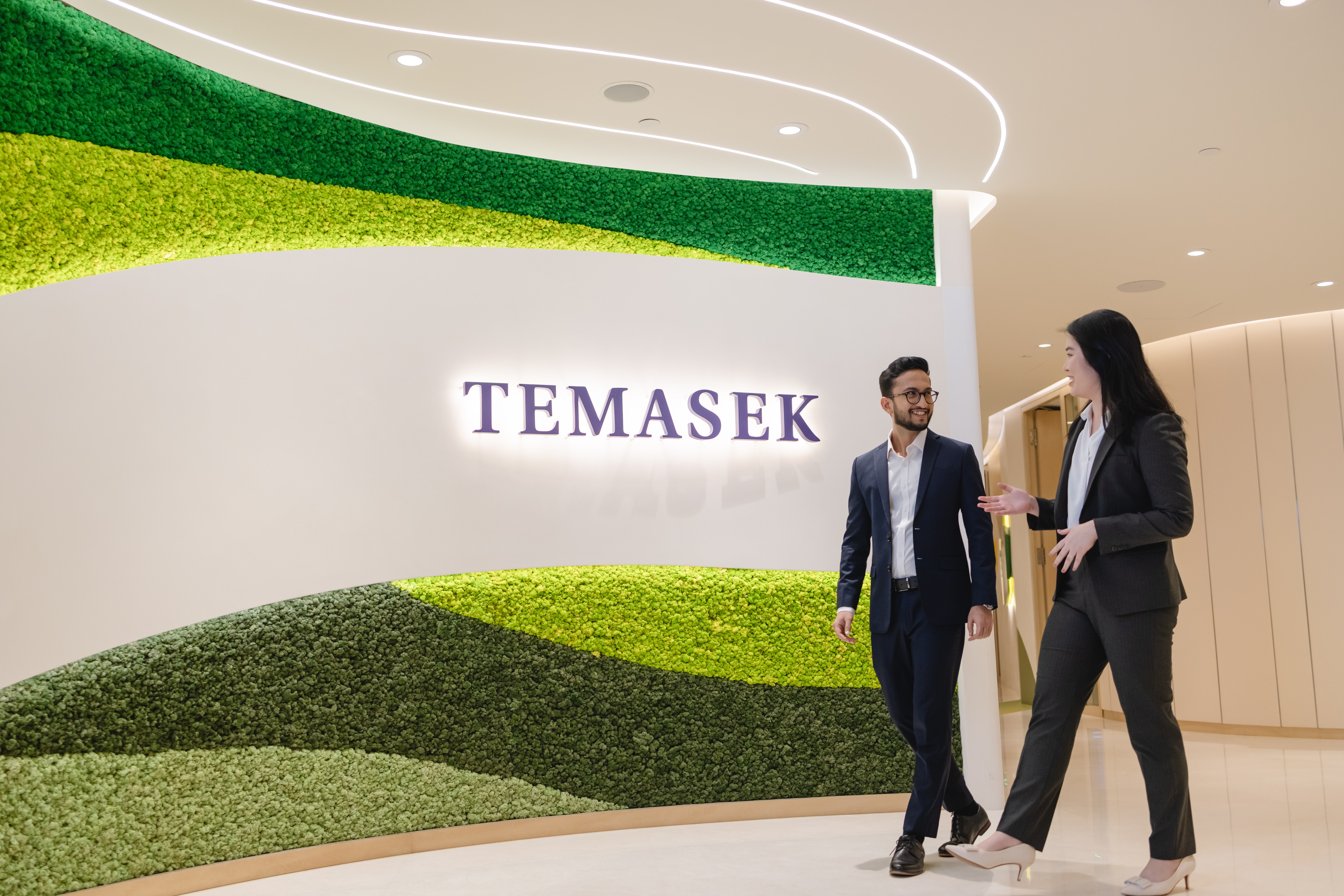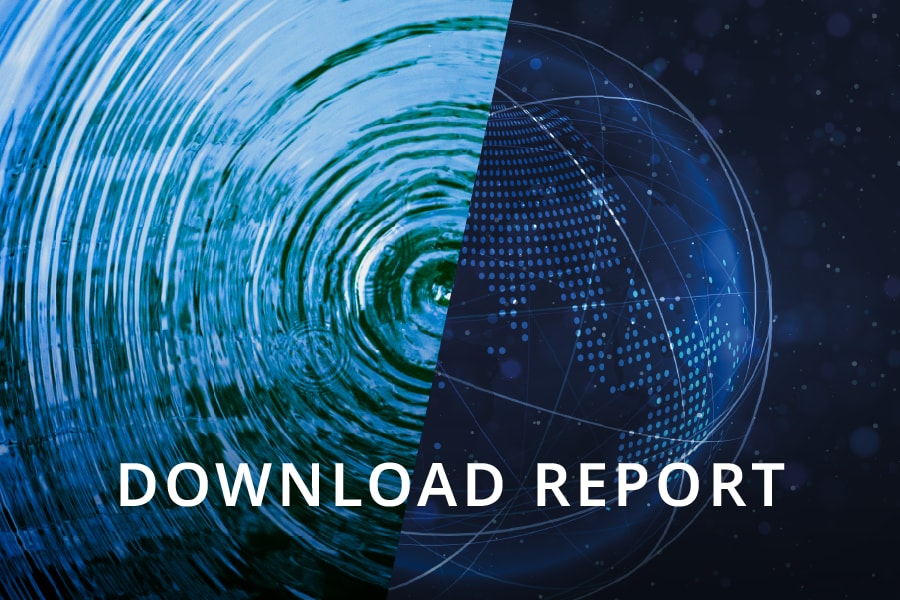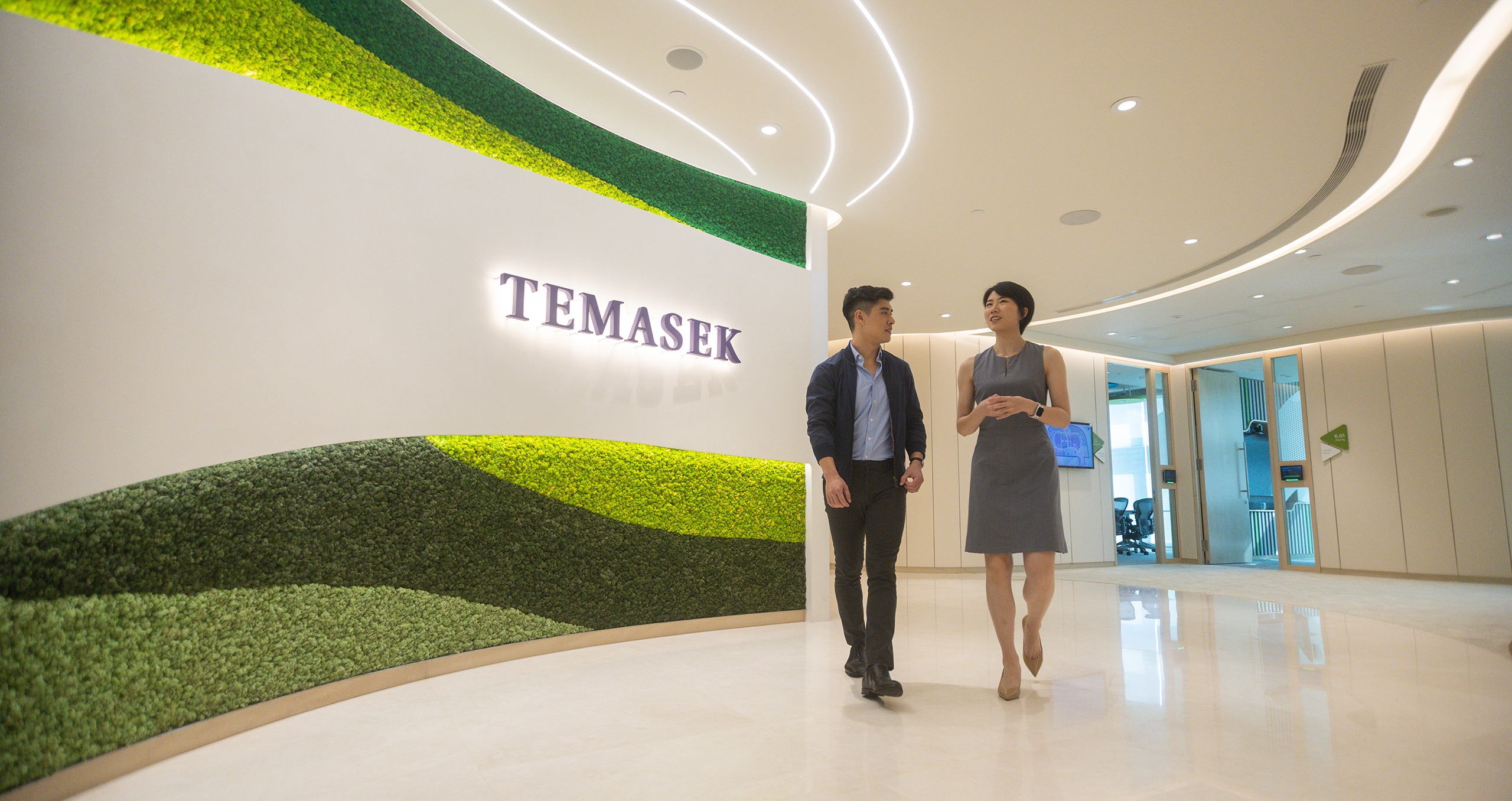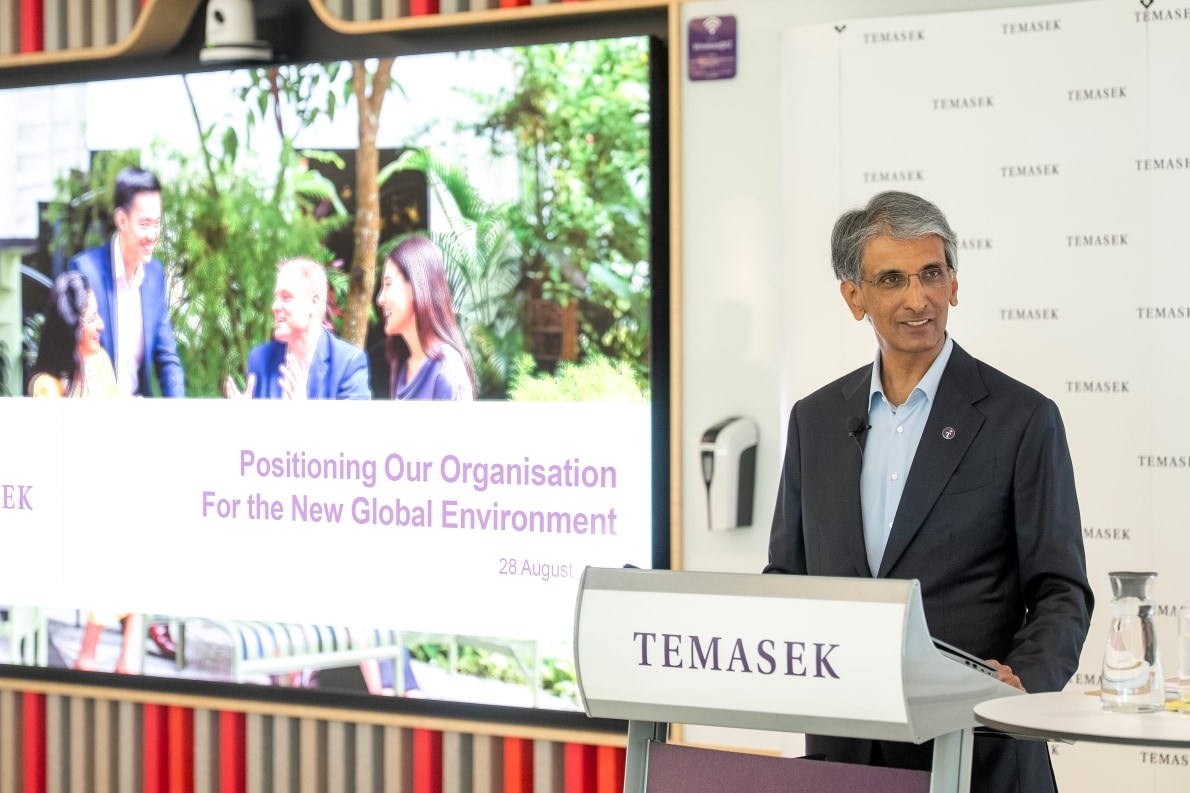Temasek's Path Forward in a Fragmented World
Dilhan: Temasek’s Path Forward in a Fragmented World

Temasek has the advantage of a globally diversified portfolio, which provides natural protection against exchange rate fluctuations.
We stand at a crucial turning point in history. The world is experiencing seismic changes in the global order, with the international rules-based system that favoured globalisation and free trade being challenged by rising nationalism, protectionism, and fragmentation.
For decades, Singapore benefitted from a rules-based global order. Though not perfect, it brought relative peace and stability, allowing a small city-state like Singapore to compete fairly. As multilateralism gives way to transactionalism, we face a more troubled and turbulent world.
These shifts have a profound impact on Temasek, a global investor with a multifaceted portfolio spanning various geographies and sectors. Our new reality requires a pragmatic approach.
Sensing the Shifts
We have identified key issues that are reshaping the global investment landscape.
Several macro headwinds have direct impact on our portfolio returns. One key question is: will inflation become sticky because of tariffs? There is uncertainty about whether inflation will be a one-time hit, or will it continue as an ongoing issue if production costs do not decline as result of supply chain changes. At the same time, trade tensions continue to evolve with unclear implications for further decoupling, supply chain disruptions, and shifts to where economic value is captured. The reordering of the international rules-based order with respect to foreign policy, defence, and trade has significant implications on our portfolio companies, our capital allocation strategies, and our ability to deliver good returns to our shareholder.
We identified geopolitical fragmentation as a trend when we were developing our 10-year road map T2030 strategy in 2019. We took the view that US-China competition would become more intense, and the issue of decoupling should be considered. As a result of COVID-19 and what happened to governments, fiscal balances and societies, we saw rising populism, nationalism, and protectionism. With constraints facing countries and societies, these issues become very real.
The proliferation of foreign investment regimes has constrained investors’ ability to invest more widely. The impact on cross-border capital flows is two-fold: affecting not only investors’ willingness to commit capital, but their ability to access markets and sectors.
Technological transformation will accelerate with Artificial Intelligence (AI). Technological advancement would impact business models and we therefore should look at workforce implications. This means Industry 4.0 and Workforce 4.0 must be developed in tandem. We partner the unions, the Government and Temasek Portfolio Companies (TPCs) to collaborate and ensure workers are skilled, reskilled, and upskilled as business models change. AI will generate significant productivity gains across all sectors. While significant investment opportunities exist in AI disruptors, we must ensure that our portfolio companies are not disrupted. Workers should also be empowered to adapt and develop new capabilities through a human-centred and human-led workforce transformation journey.
Technological transformation also creates new vulnerabilities. Business transformation through digitisation and AI adoption makes cyber resilience crucial as cyber attack surfaces have expanded.
Climate change is an existential threat to the world. It is crucial for Temasek to consider the effects of climate change as we have long-tail assets. Businesses face practical challenges in becoming more sustainable. For example, it is not easy to shift a company that is powered by LNG power to purely renewable energy. That means while we cannot give up on LNG completely, we must continue to invest in renewable energy. We own an airline, SIA, and we know that the only way to bring down carbon emissions for the aviation industry is to adopt sustainable aviation fuel. However, that is many years away as the cost curve is high. Meanwhile, SIA is making sure that it has a fuel-efficient fleet. We encourage our portfolio companies to implement sustainability strategies as businesses will inevitably face carbon taxes and other fiscal measures in the future.
Adapting to the Shifts
We need to build a portfolio that does well, regardless of high or low inflation, high or low growth, and whether we have trade tensions or bifurcation.
We have constructed a portfolio anchored by three segments, Global Direct Investments (GDIs), Singapore-based Temasek Portfolio Companies (TPCs), and Partnerships, Funds, Asset Management Companies (PFAs), with an approximate distribution of 40-40-20. This distribution has remained stable since 2018, and we expect it to remain broadly similar for the foreseeable future. Our diversified portfolio and the strength of our underlying assets will enable our portfolio to withstand market shocks in an increasingly uncertain future and deliver sustainable returns over the long term.
Each business segment requires distinct strategies, capabilities, and partnerships. To this end, we will adapt our organisational structure so that the segments will operate through three separate entities, Temasek Global Investments (TGI), Temasek Singapore (TSG), and Temasek Partnership Solutions (TPS), from 1 April 2026.
TGI focuses on GDIs in established and emerging market leaders that can thrive amidst uncertainty and are aligned to four structural trends which are digitisation, sustainable living, future of consumption, and longer lifespans. We like companies that have track records of stable cash flow and earnings, are self-sufficient, have access to a large domestic market, have relatively resilient supply chains, and strong pricing power.
We have the benefit of owning a global portfolio that provides a natural hedge against currency fluctuations. We recognise that currency depreciation is always relative. Our portfolio has built-in protection against single-currency movements, with 40% of the portfolio consisting of Singapore dollar-based TPCs and geographic diversification across US dollar, Euro, Renminbi, and Japanese Yen.
We are looking to increase our exposure to promising opportunities such as core-plus infrastructure and AI. Core-plus infrastructure is an asset class that provides resilient risk-adjusted returns and stable cash yields, and includes assets such as data centres, infrastructure to support the energy transition, and ageing infrastructure that needs to be replaced.
We deploy our capital to core-plus infrastructure directly through our TPCs that have deep infrastructure domain expertise, such as PSA and Sembcorp, and partnerships with key global investors such as Brookfield, whom we worked with to acquire a stake in France-based renewable energy producer Neoen. We also invest through funds such as Global Infrastructure Partners.
Our AI investment strategy focuses on opportunities across the AI value chain, from AI winners which are growing and scaling at an exponential pace, to AI factories or infrastructure that enable the broader AI ecosystem, to emerging AI innovators with the potential to disrupt and redefine the market.
We invest directly into AI-related companies and categories. These include investments in scaled AI winners include Alphabet, Amazon, and Microsoft; companies involved in compute power such as Nvidia, TSMC, and Broadcom; digital enablers such as Databricks and V7; companies developing digital applications such as Veeam and Intapp; and companies developing physical applications such as Waymo, Field AI, and Zipline. We have set up AI-related ventures, such as Aicadium, minden.ai, and Resaro, which work with our TPCs for value uplift and address the needs of the broader market. We also invest into AI funds which provide us with access to key networks, insights, and expertise. These include cross-sector collaboration funds such as AI Infrastructure Partnership, venture capital funds with AI expertise, and AI specialist funds.
TSG focuses on active portfolio management of Singapore-based TPCs, which have aggregate revenue of about S$200 billion and employ over 160,000 people in Singapore. As about 50% of our portfolio is headquartered in Singapore, it is not meaningful to compare us against a global index like MSCI ACWI which has minimal exposure to Singapore. Conversely, we should not be compared against a local index like STI as we have over 70% underlying assets exposure outside of Singapore.
We want to empower the workers at our TPCs to take on higher value work in a world being transformed by AI. Jobs at our TPCs are already becoming more productive and more engaging because of AI and automation. At SP Group, tunnel inspectors now operate and train robot dogs, combining field experience with tech skills to improve safety and efficiency. At PSA, a Container Equipment Specialist, a role once defined by manual operations, can now work as an Automated Equipment Specialist, a job that did not exist a few years ago.
We partner our TPCs to achieve organic expansion by utilising a company’s existing internal resources and capabilities, and inorganic expansion through M&As (mergers and acquisitions). We actively engage our TPCs to enhance value and build alignment, sharing our expectations as a shareholder with the boards while working with them to promote close alignment between strategy and performance, as well as returns and rewards. We supported SATS’ acquisition of Worldwide Flight Services (WFS), transforming it from an Asia-centric ground handling and catering provider into the world’s largest air cargo handler, with WFS now generating most of the revenue from the US and Europe. Seatrium, which is one of the world’s largest offshore and marine engineering players, was formed by merging Sembcorp Marine and Keppel Offshore & Marine, and as a result achieved an uplift of S$23 billion for all shareholders as at the end of August 2025.
TPS is focused on managing allocation of capital to invest in funds, building strategic relationships with these funds and other investors, and working with Seviora Holdings, our main asset management platform, to deepen relationships with partners. Seviora will work together with TPS to undertake a strategic review of existing Asset Management Companies (AMC) and explore growing new ones. Partnerships and funds constitute more than two-thirds of this PFA segment while our AMCs, which have over S$90 billion of assets under management as at 31 March 2025, make up the remaining one-third. TPS will enable Temasek to scale our capital and tap on a broad range of opportunities that include offering capital solutions such as private equity, private credit, public market investments, and tailored financing options.
Thriving in a Fragmented World
Adapting our organisational structure will ensure that we have a laser-focus on each portfolio segment. We will have clear performance indicators, with metrics spanning financial and non-financial outcomes, and capital allocation strategies catered to the unique needs of the segments, while maintaining our commitment to achieving sustainable returns over the long term.
This new structure will allow us to maintain a high-performing OneTemasek team, with the right values and culture. It will empower our leadership bench, that will lead Temasek to 2030, and allow us to bring in people to augment our current capabilities to deliver on our goals.
In this era of transactionalism, Temasek believes that the path forward lies in building networks and partnerships. We hold steadfast to our belief that by staying united and harnessing our collective strengths, we will ensure that Temasek continues to thrive so that every generation prospers.
Dilhan Pillay Sandrasegara is the Executive Director and CEO of Temasek Holdings.
Source: Lianhe Zaobao © SPH Media Limited. Permission required for reproduction
This is a translated version of the original article: https://www.zaobao.com.sg/forum/views/story20251015-7663492


